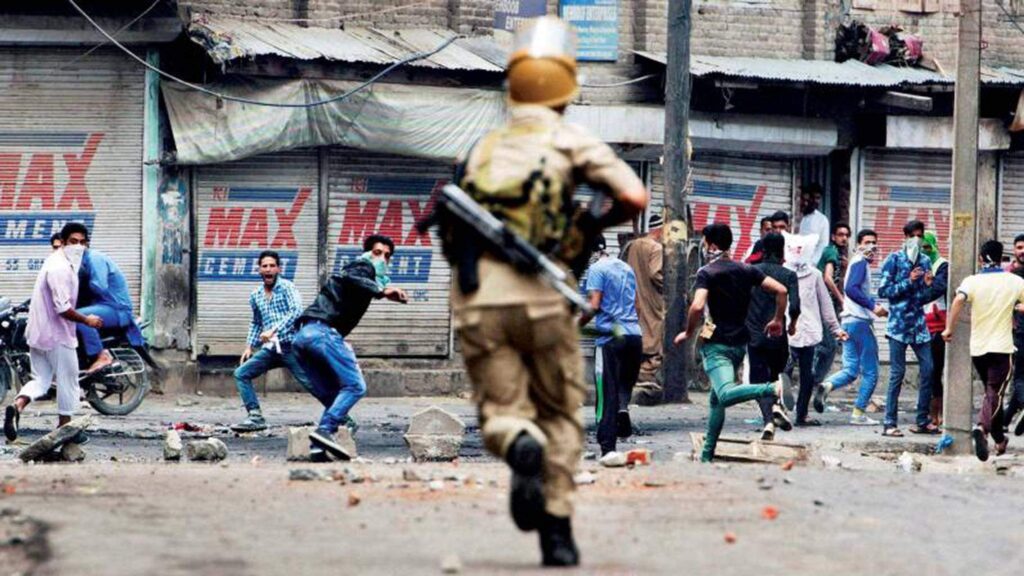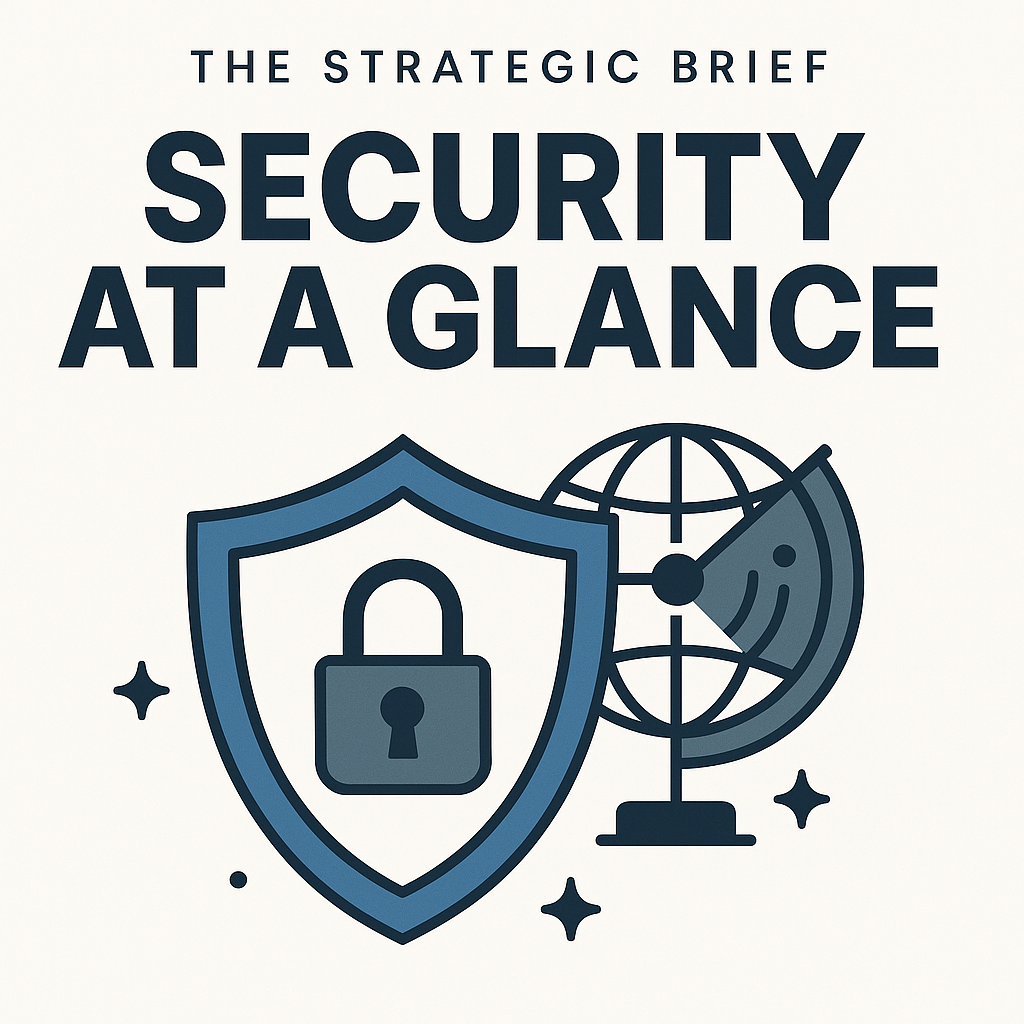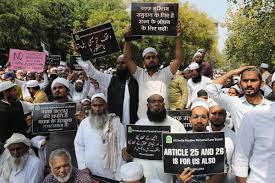

Amna Siddique
An armed revolt has been waged against Indian rule in the region for three decades, claiming tens of thousands of lives. India blames Pakistan for stirring the unrest by backing separatist militants in Kashmir – a charge Pakistan denies. Kashmir has long remained the most sensitive pressure point in India and Pakistan’s acrimonious relationship. In the 1990s, a pro-Pakistan militant insurgency emerged in India-administered Kashmir and the state has battled the issue of terrorism and militancy since.
Now a sudden change to Kashmir’s status on the Indian side has created further apprehension. Article 370, which for almost 70 years had enshrined special rights for Jammu and Kashmir outside the Indian constitution, was revoked by the government of Narendra Modi in August 2019 through a presidential order, with no consultation with the Kashmiri people. The abrogation of article 370 was enforced by a lengthy crackdown on the state, where the military was mobilized in vast numbers, political leaders were jailed, a strict curfew was imposed, and the internet was shut down for 18 months. It was stripped of its statehood and its political representation was dissolved and has not been restored since.
Recently, the 18th December 2023 Supreme Court ruling is a huge success for the government of the Hindu nationalist Bhartiya Janata party (BJP), which has been promising to revoke Article 370 for years. The party had justified the action based on bringing the security situation in the state under control, though militant attacks have continued since. In its ruling, the Supreme Court said Jammu and Kashmir should be restored to the same statehood as any other Indian state – with no separate autonomy rights – “at the earliest and as soon as possible.” The five-judge constitutional bench of the Supreme Court ruled the region’s special status had been a “temporary provision” and removing it in 2019 was constitutionally valid. With the repeal of Article 370, Article 35A was also scrapped, allowing non-Kashmiris to buy property in the region and raising fears that India is trying to engineer a “demographic shift” in the Muslim-majority region. By commenting on the verdict Omar Abdullah, a former chief minister and vice president of the Jammu & Kashmir National Conference party maintained that “Disappointed but not disheartened, the struggle will continue. It took the BJP decades to reach here. We are also prepared for the long haul.”
Modi led Indian government is not contended with usurping the rights of the Kashmiris of IIOJK only but is trying to target Pakistan from all four fronts including political, military, security, and diplomatic fronts to undermine the defense of Pakistan, especially from Gilgit-Baltistan and Kashmir. It is crucial for our state agencies to unearth and foil the Machiavellian steps and conspiracies of the BJP led Government of India. As Pakistan has already suffered regionally and globally in the war on terror, India intends to take advantage of Pakistan’s precarious condition. The uptick in terrorism from Afghanistan and economic instability have added to the woes of Pakistan. Indian hawks like Ajit Dovel and Defence Minister Rajnath Singh are not mincing the words to hurl threats against Pakistan. Obviously, this belligerence is as per vision of PM Modi and is backed by its military commanders. It is high time for Pakistan to take this matter seriously and minutely monitor the statements and sinister plans of the Modi brigade.
There are strong indicators that another rift between India and Pakistan is in the offing. Kashmir, as always, will be the flash point. India’s hegemonistic measures are bringing the two nuclear states to the brink of war. Naturally, Pakistan will not leave the Kashmiris of IIOJK at the mercy of Indian brutalities. It is not only a matter of self-determination for Kashmiris but a perennial problem of territorial integrity of Pakistan. Both have fought at least three wars over this issue. The battle on Siachen, the highest battleground in the world, has continued for the last four decades. India is bent upon igniting the situation again.
The uprising of Kashmiri freedom-fighters is again gaining momentum. Only last week the Kashmiri freedom fighters ambushed the Indian military convoy in Rajouri district and killed four soldiers. Indian media jumped to blame Pakistan for this attack. They are playing to the tune of Doval-Modi doctrine of targeting Pakistan in Kashmir and Gilgit Baltistan. Overt indicators strongly point towards their multi-pronged hybrid war in these areas and in Pakistan in general. They are fully aware that successful attacks of Hamas on Israel will give impetus to Kashmiri intifada. Supreme Court of India’s decision has come at an extremely sensitive time. The sentiments of Muslims across the world are quite stirred over Israeli brutalities in Gaza. The Muslims of India are perturbed over BJP’s anti-Muslim approach. Its high-handedness against the Muslims of IIOJK can burst into flames very soon. To divert the attention of the Indian public from this domestic issue, Modi-Doval duo might attack Azad Kashmir and Gilgit-Baltistan Pakistan must keep its guards up and develop a joint defence mechanism with the help and support of China in this region. A united stand will deter India from its aggressive designs. Besides, well-planned, and sustained security and intelligence measures ought to be adopted in these regions. Federal intelligence agencies should deploy more workforce and use technology to gather foreknowledge to foil the sinister designs of Indian intelligence agencies. The key to success is to adopt proactive approach instead of waiting to deflect the enemy’s moves. More importantly, federal and local governments must take all measures for the socio-economic uplift of the area.
The author is the Assistant Editor of TSB



